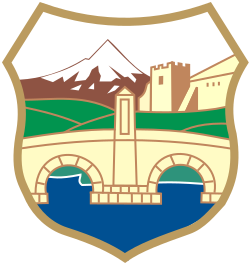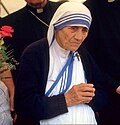
This is a List of honorary citizens of Skopje North Macedonia. * [1]
| Name | Photo | Year of awarding |
|---|---|---|
| Ivan Ribar |  | 7 May 1921 |
| Josip Broz Tito |  | 13 November 1946 |
| Władysław Gomułka |  | 16 November 1965 |
| Józef Cyrankiewicz |  | 16 November 1965 |
| Olav V of Norway |  | 7 September 1966 |
| U Thant |  | 30 August 1970 |
| Mother Teresa |  | 27 June 1980 |
| Frenk Munning | 26 July 1983 | |
| Umberto Vatani | 17 October 2005 | |
| Sharik Tarа | 30 November 2005 | |
| Christopher R. Hill |  | 26 July 2008 |
| Lawrence Eagleburger |  | 26 July 2008 |
| Thorvald Stoltenberg |  | 26 July 2008 |
| Werner Trini | 26 July 2008 | |
| Filip Vujanović |  | 5 March 2012 |
| Richard Neuheisel | 14 July 2012 |